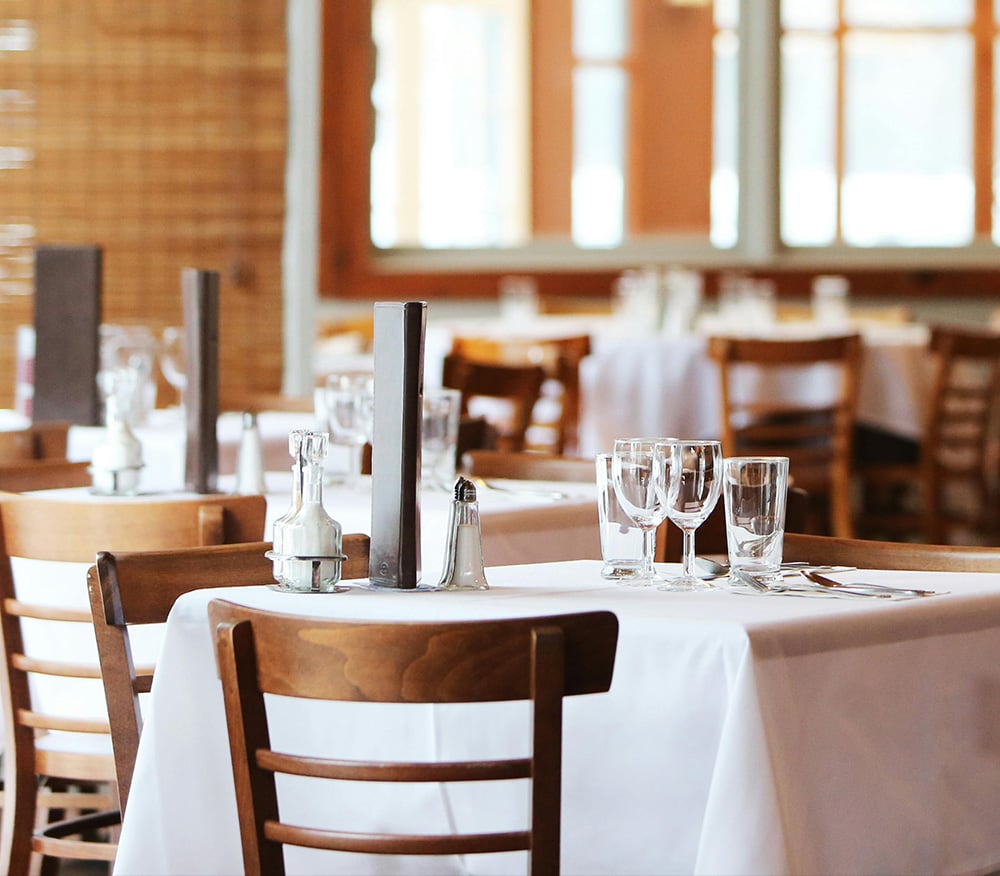Table of Contents
Astonishing speed, agile reaction times, and the ability to deliver just the right amount of spice (have you seen our billboards?) — these are the top qualities that Bridgement shares with most chefs. Because we know that the best unsecured business loans for restaurants are those that can be approved faster than it takes to bring a pot of tagliatelle to the boil and cooked al dente.
And, as any restaurateur worth their salt knows, speed is of critical essence in the restaurant business. Having fast and flexible access to business funding is critical to the survival of any small business, but never is this more true than it is for businesses in the food service industry, where your wit needs to be as sharp as your knives.
The best unsecured loans for restaurants cater for seasonality and unpredictability
Here’s the rub: restaurant businesses are especially vulnerable to major fluctuations in cash flow because of seasonality and the relative unpredictability of the industry. In a country like South Africa, where tourists flock to local restaurants and food markets with hard currency for a few short but glorious months of the year, some businesses survive the entire year on the earnings made during a single busy season.
But the business of that season is never secured for sure. Changes in the weather, travel restrictions, global conflict, and rising local crime rates all threaten to dampen the festivities, causing dollar-wielding visitors to take their cash elsewhere, leaving local restaurants with the potential for rapidly diminishing cash flow.
Unfortunately, even the loyalty of local patrons is besieged with its own set of potential problems. Weak economic growth, even in a resilient economic climate, can impact consumer confidence and reduce the demand for non-essential expenses like eating out or getting takeout.
Then there are the market fluctuations that affect the restaurant itself, like steadily rising food prices for key ingredients like cooking oil, rice, and onions, not to mention fuel hikes and an unstable electricity supply.
Laid out like this, it can sometimes feel as though the challenges associated with running a successful restaurant in South Africa are insurmountable. Yes, this industry is an especially fast-moving and unpredictable but, with the right finance solutions provider at your side, your restaurant can overcome common challenges to become the stuff of local legends.
Why foodie entrepreneurs should develop an appetite for alternative funding
When lucrative business opportunities arise, most enterprises approach a traditional lender like a bank to secure financing to fund the next phase of their growth. However, suppose a restaurant needs to cater a big event at late notice, place a grocery order for a redesigned menu, or urgently replace kitchen equipment. In that case, they can’t afford to wait a few weeks for funding. In an industry where cash is tied up in inventory that literally only lasts a few days at best (just imagine being a sushi restaurant — all that raw fish!), speed is of the essence.
This is why restaurateurs would do well to consider alternative financing the next time an urgent need or opportunity arises. Unlike traditional lenders, most alternative lenders require no collateral and can process applications in a matter of days rather than weeks, equipping restaurants with the cash flow they need to make lunch service by tomorrow. We can scarcely name a more complementary pairing than restaurant businesses and alternative financing.
The best unsecured business loans for restaurants in South Africa
Bridgement offers a diverse range of fast, flexible, and convenient business finance solutions well-suited to growing businesses.
The flexibility of our facilities is matched only by the speed of our services, making it easy for restaurants to handle seasonal fluctuations and improve cash flow with ease.
It takes only 2 minutes to apply online and less than 24 hours to access up to R5 million in business financing. By the time your sourdough has finished proofing, your business could have received a welcome injection of cash flow. Sound good? (Hint: the answer here is, “Yes chef!”)







